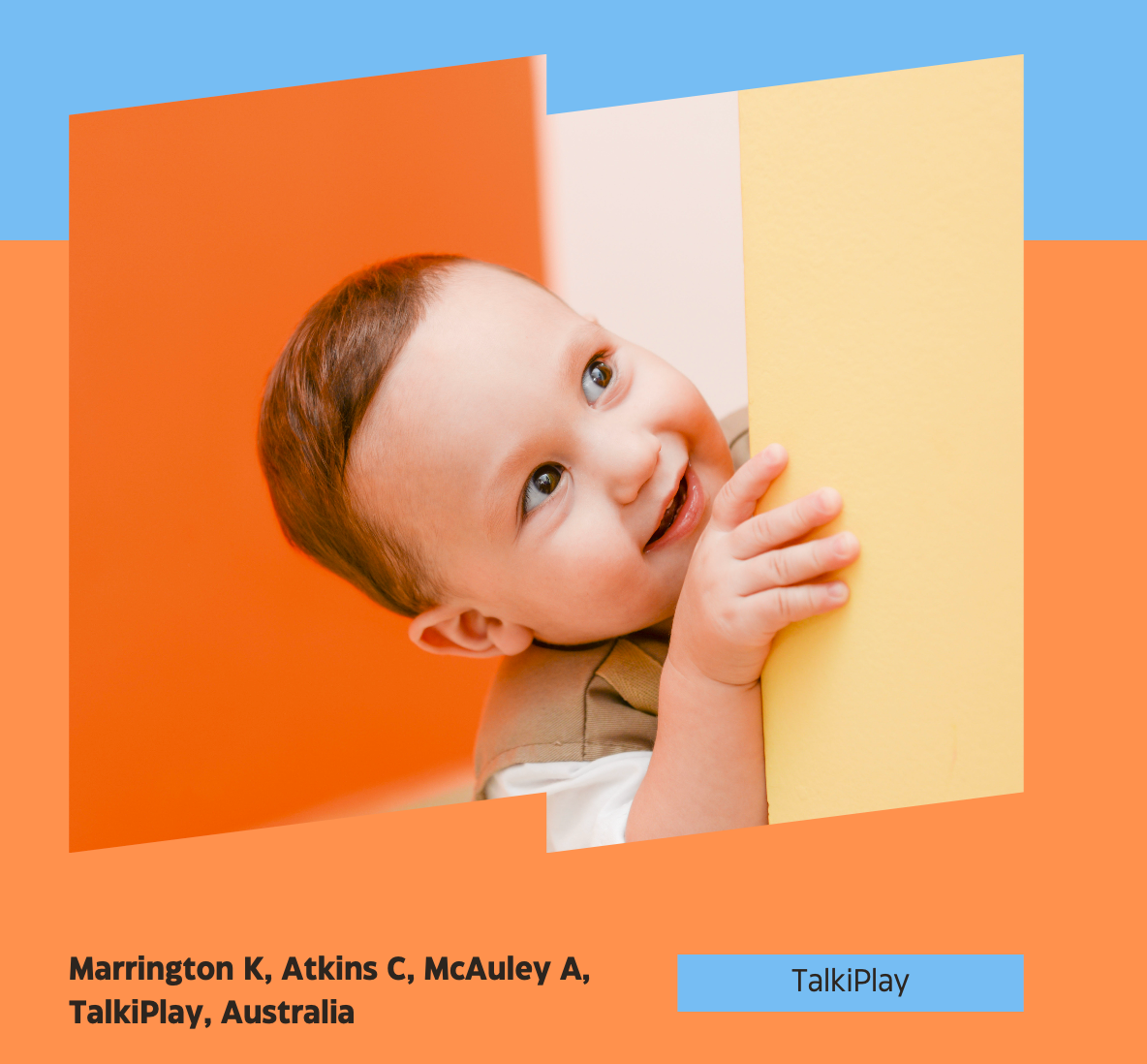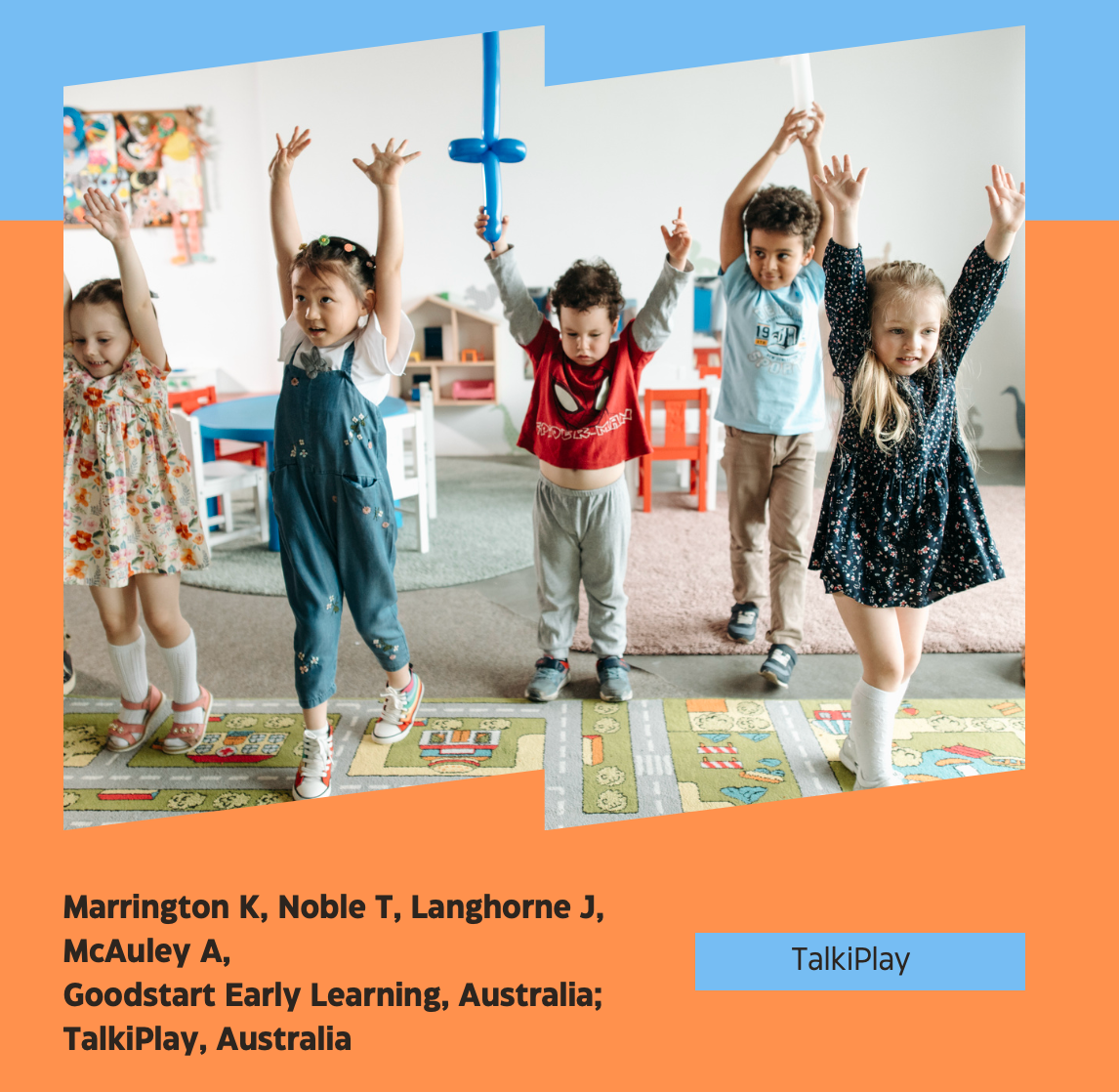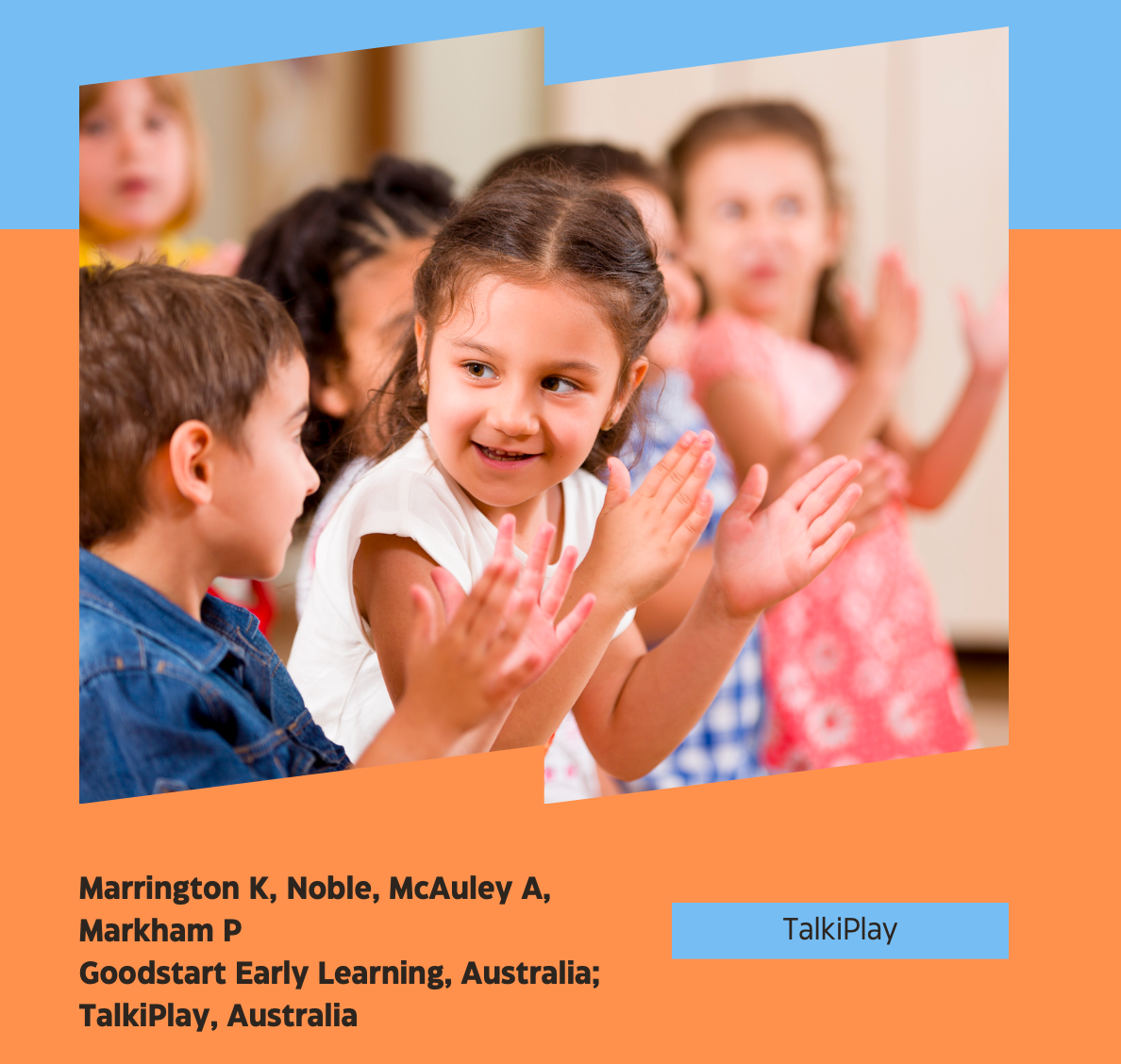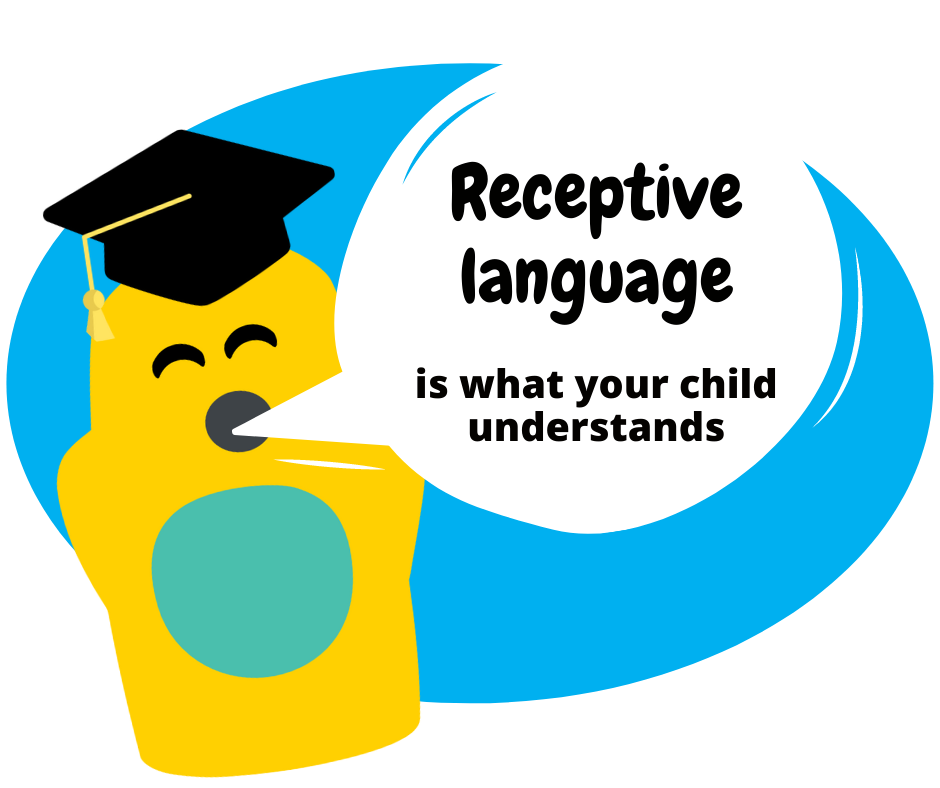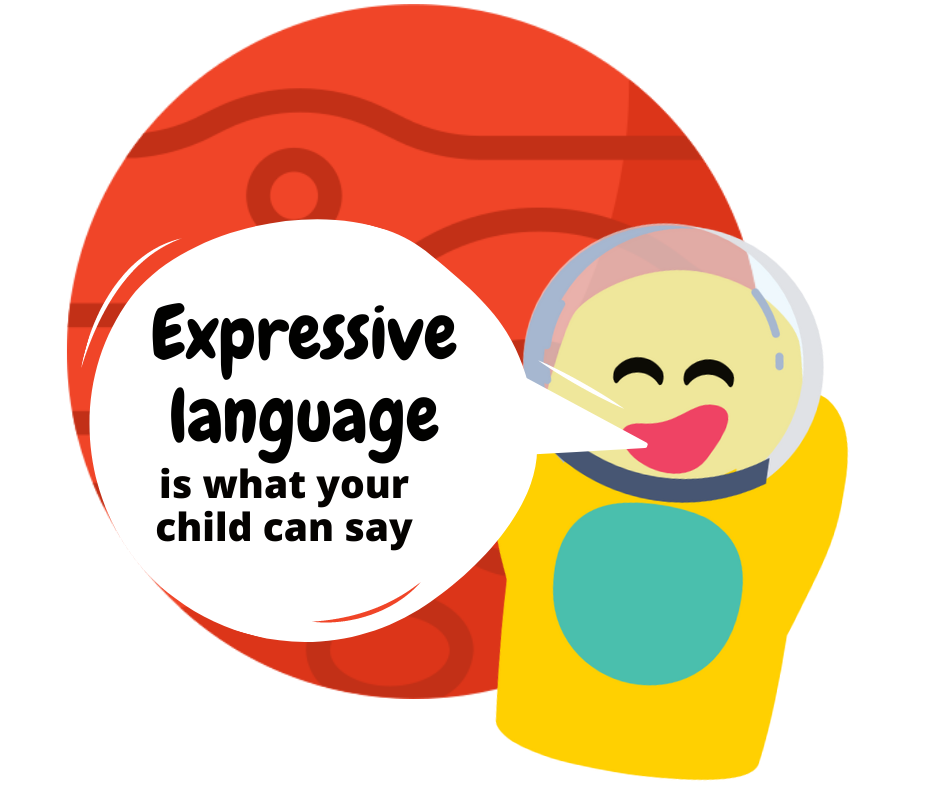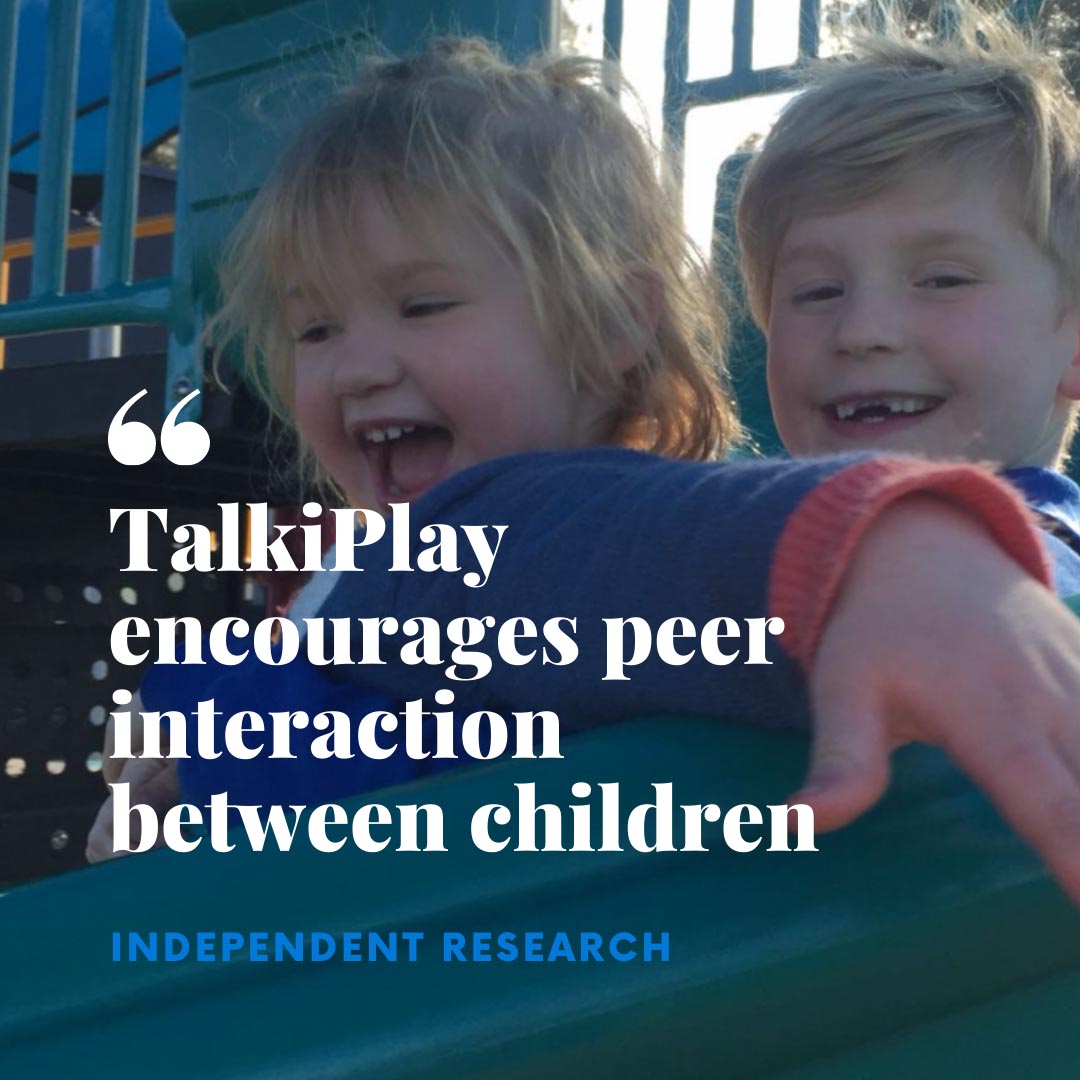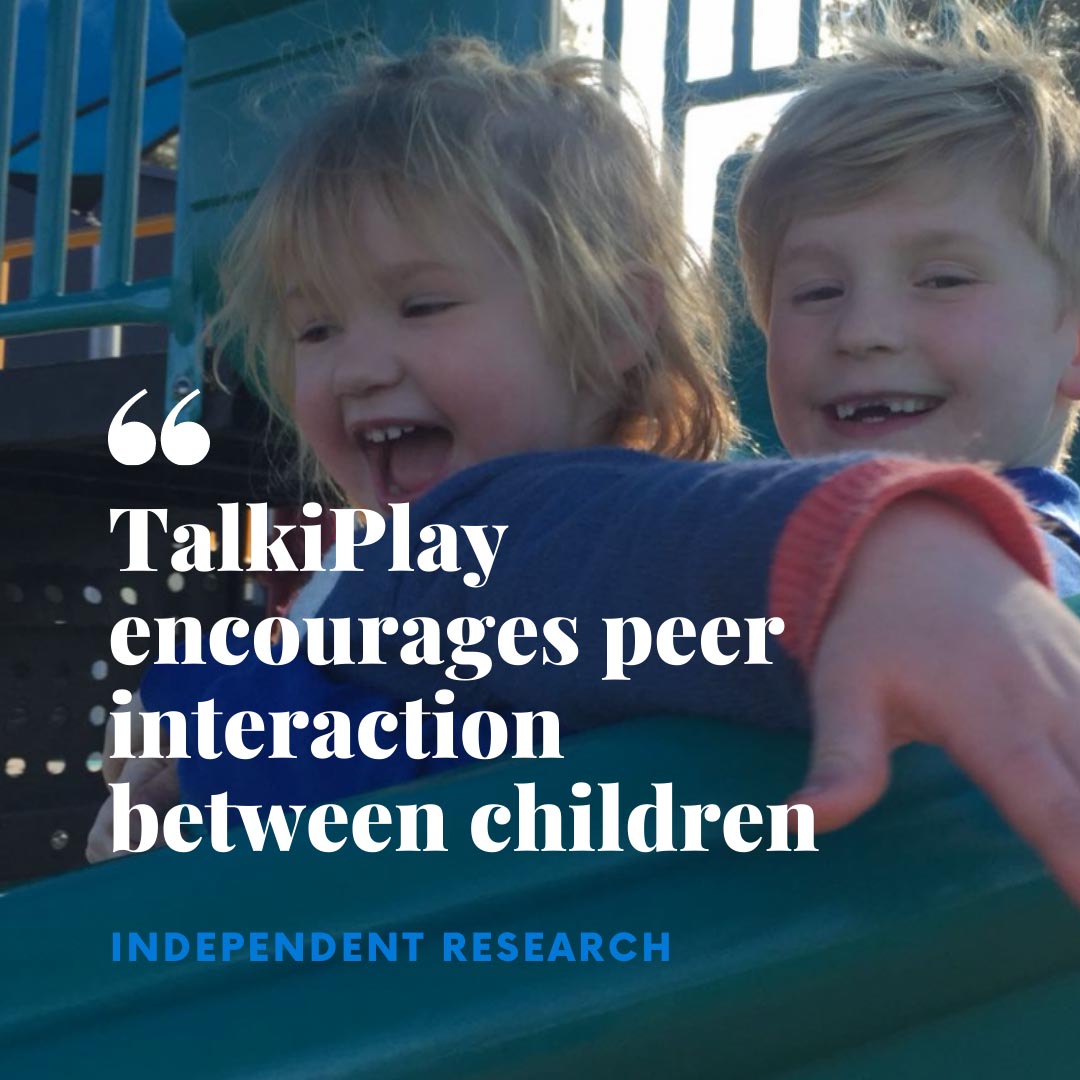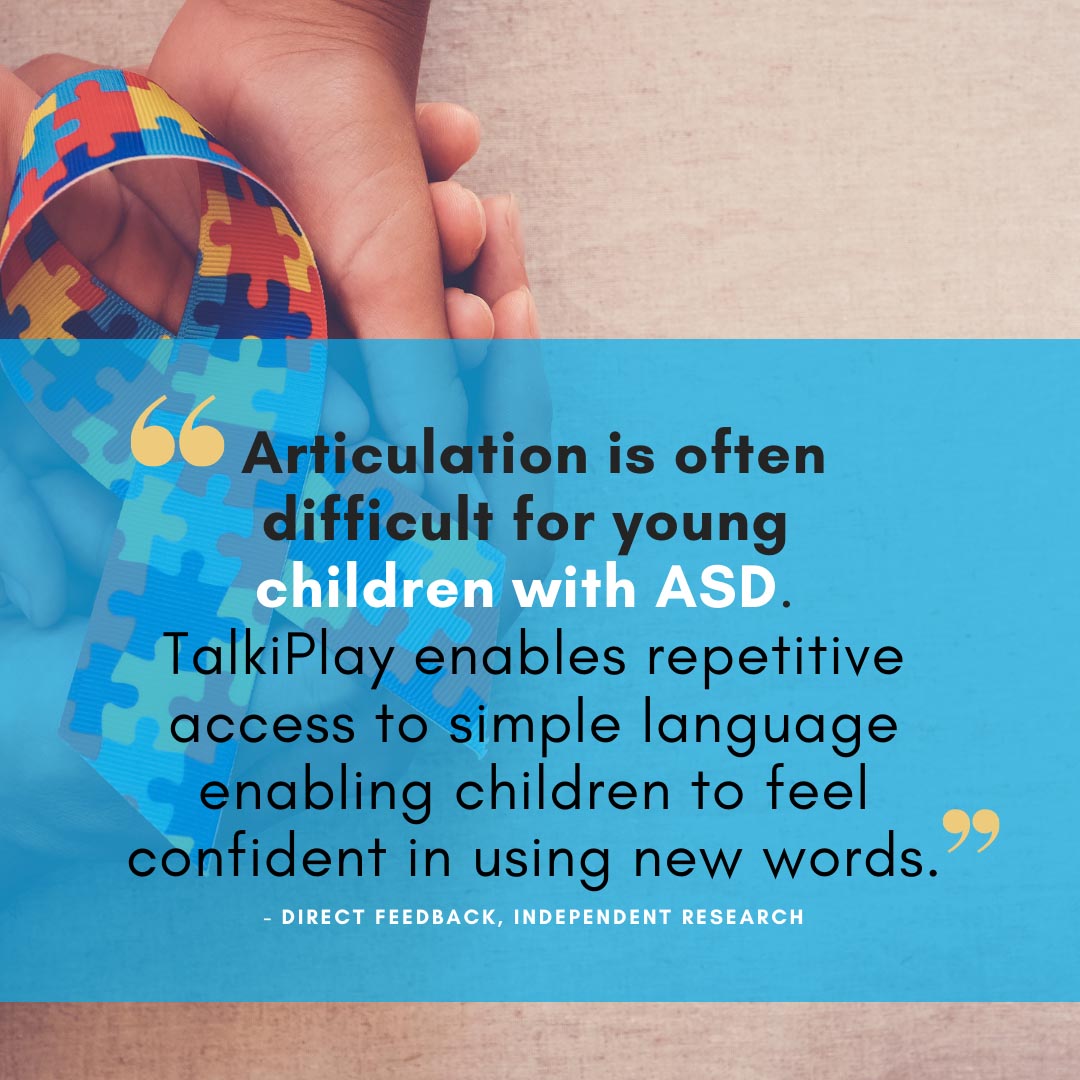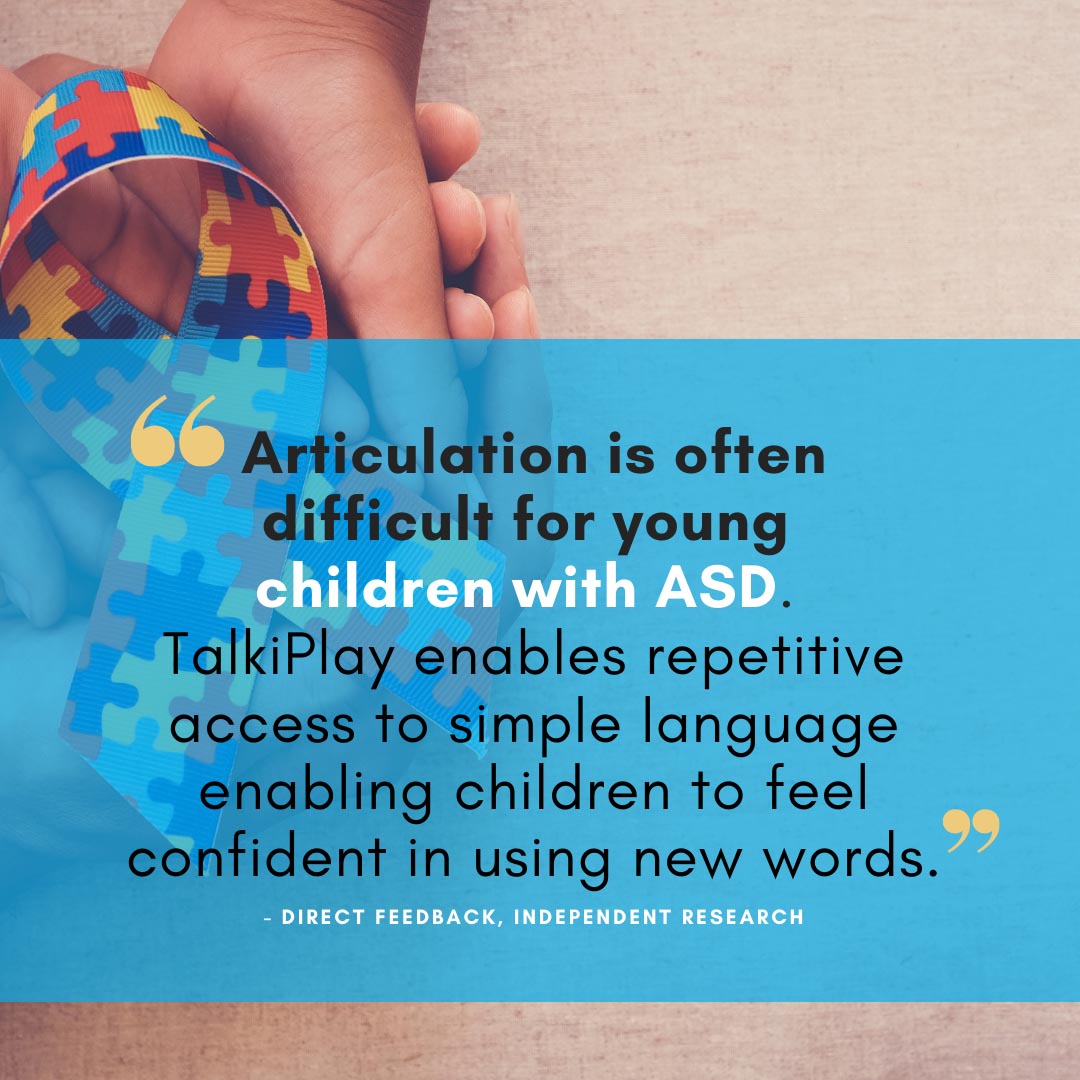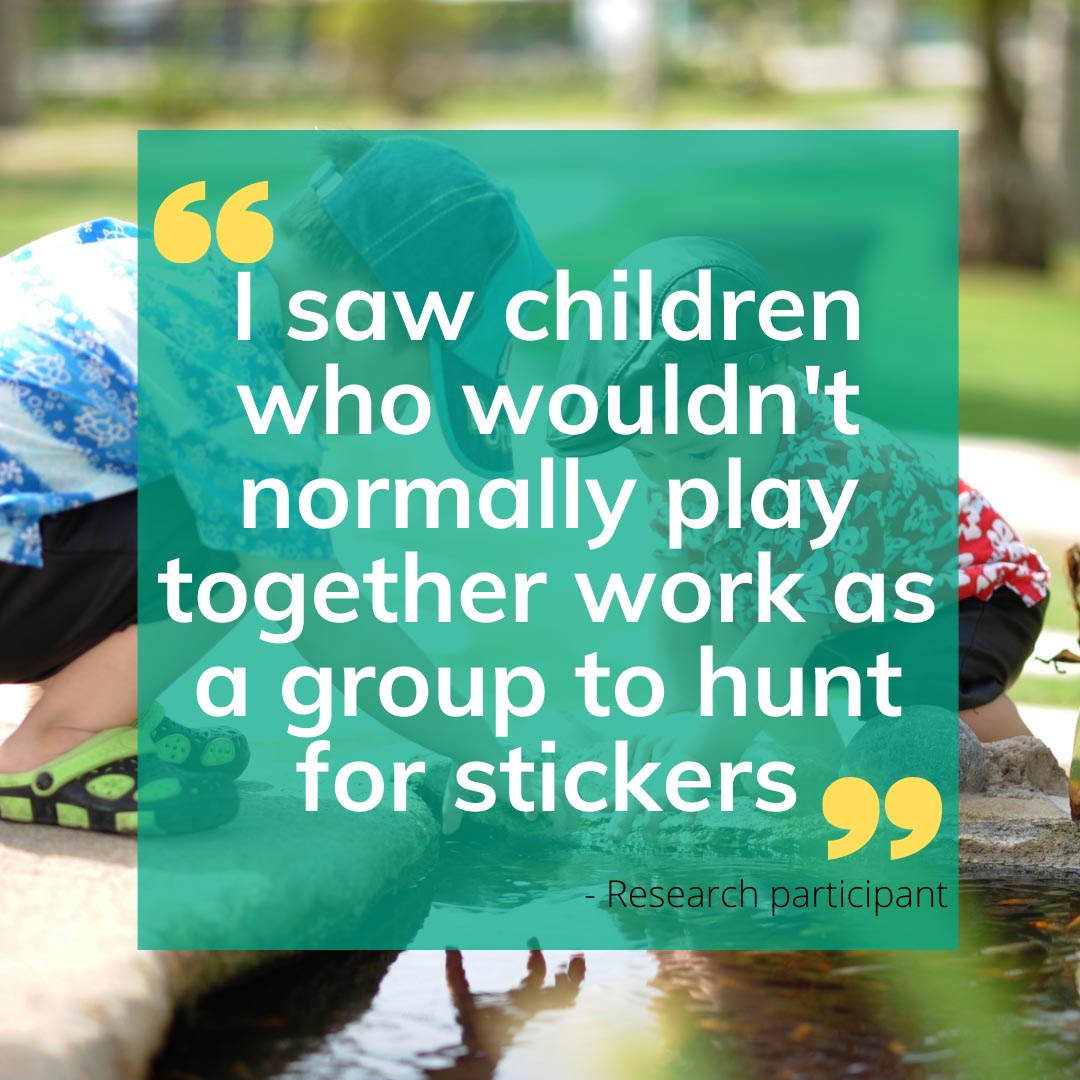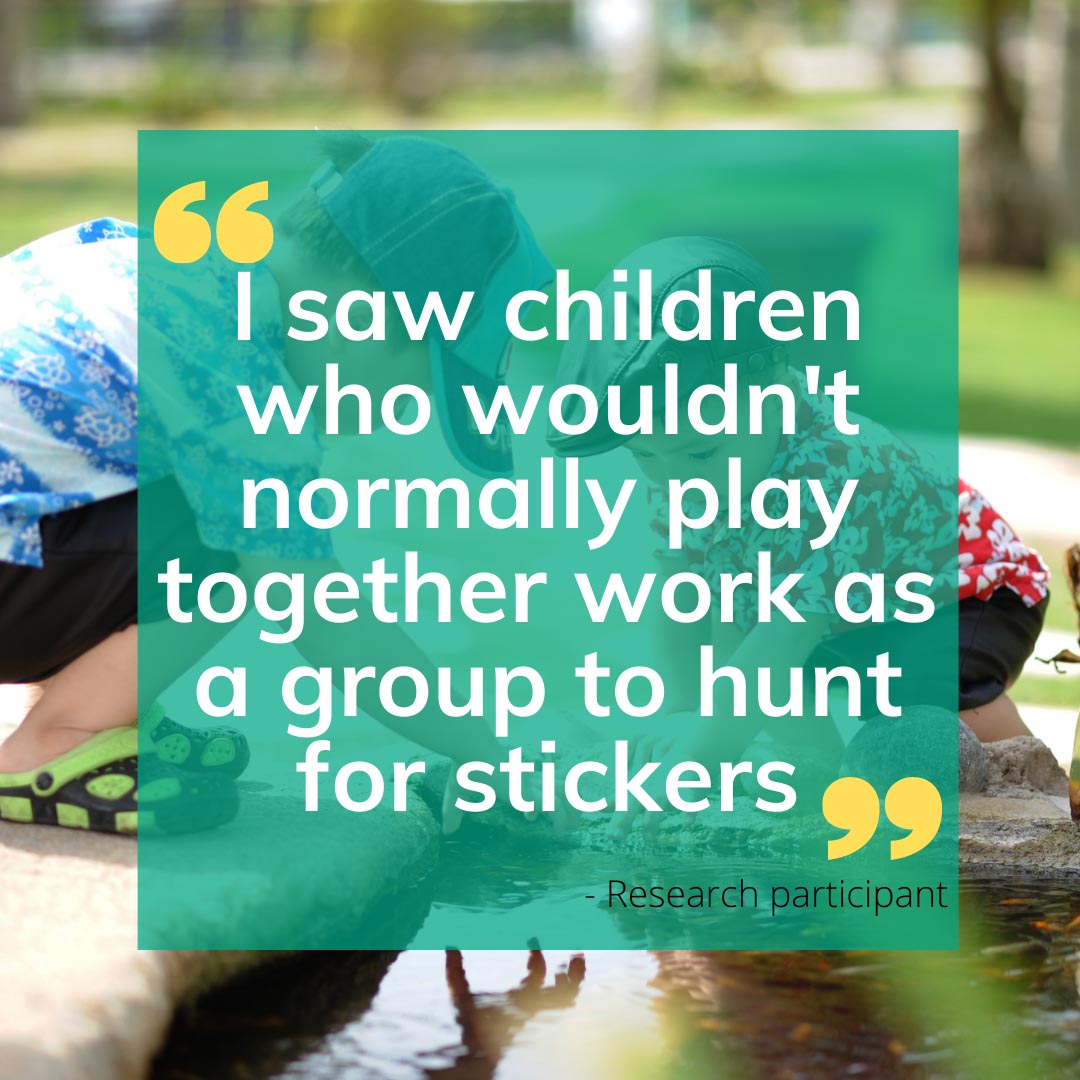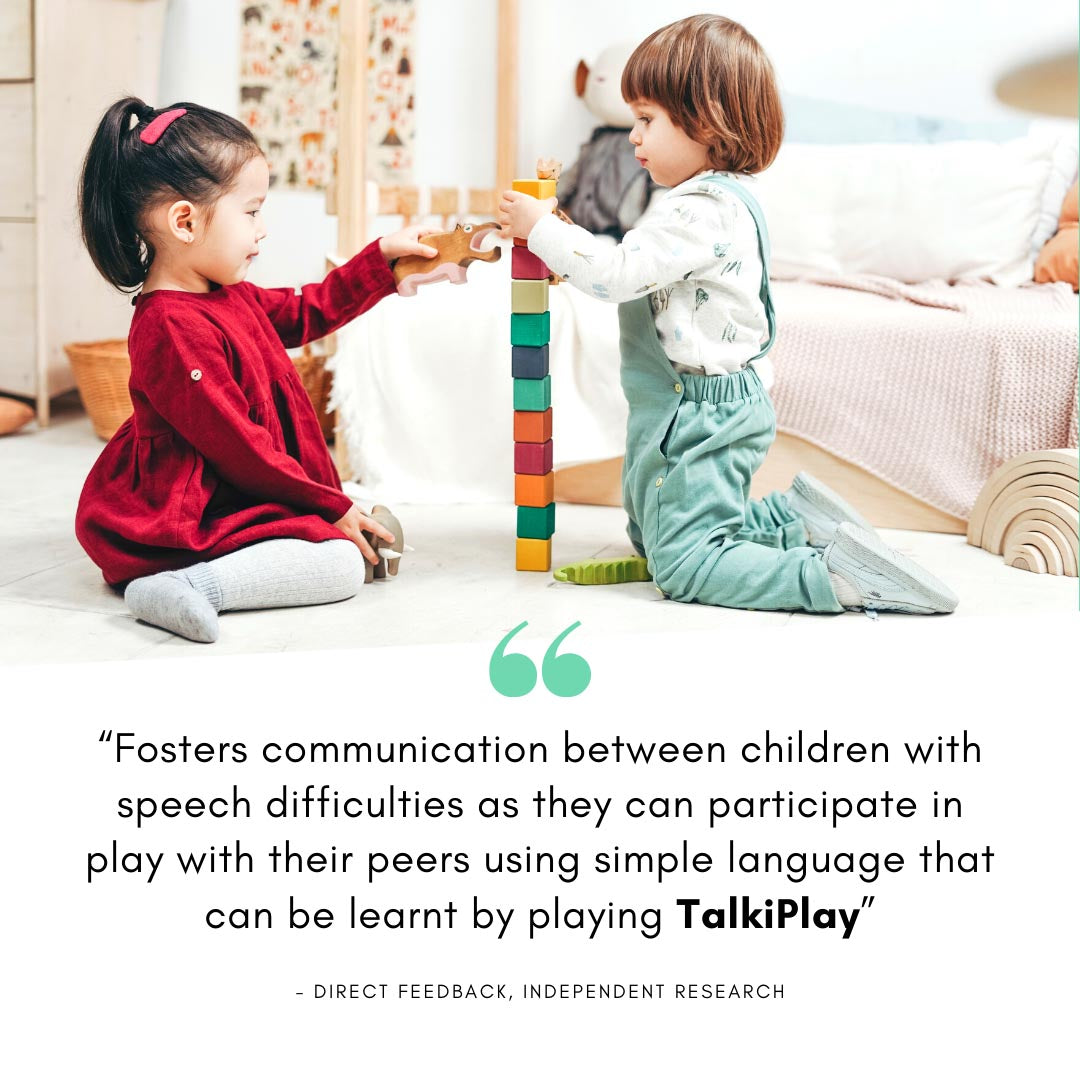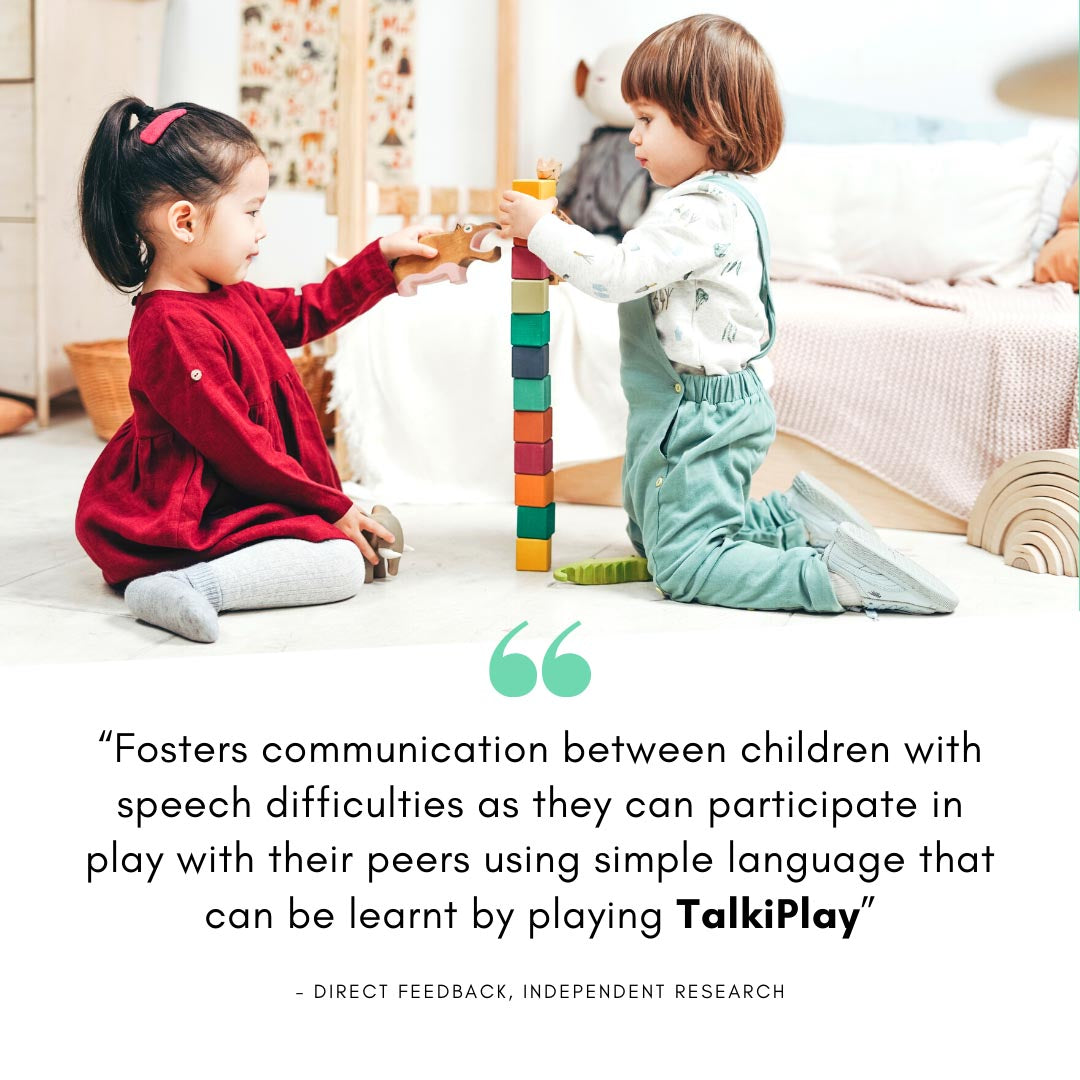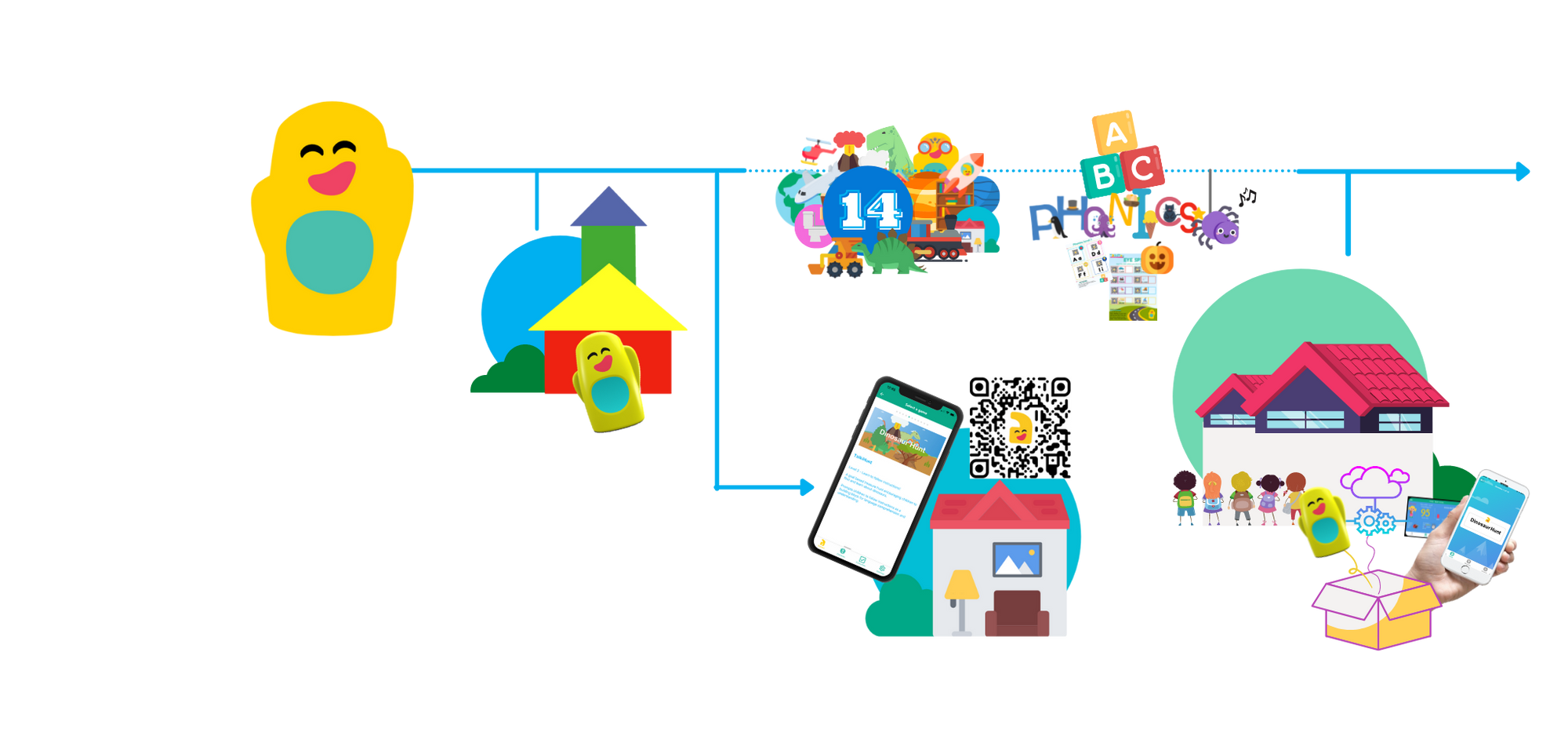Research and Case Studies
-
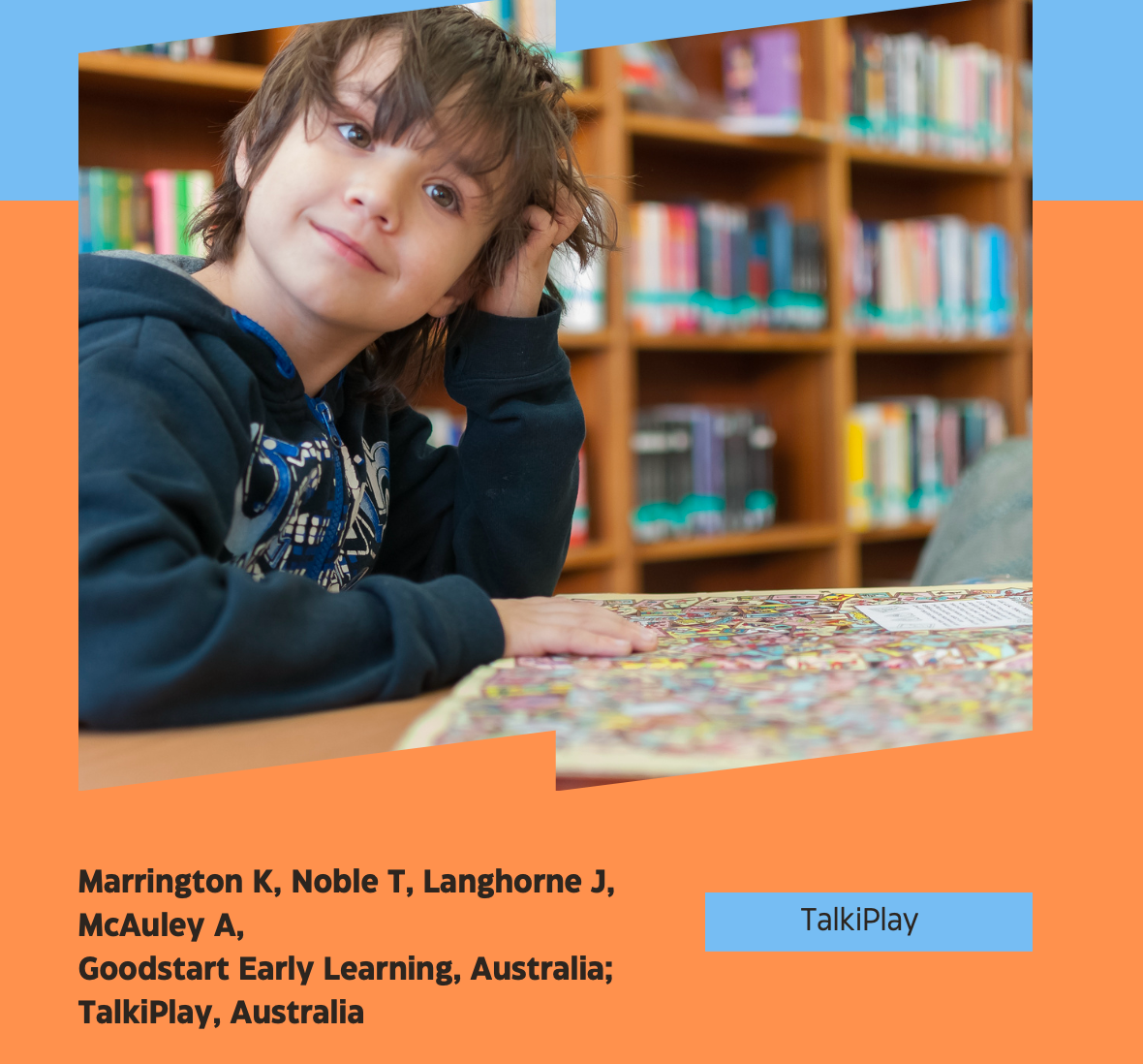
Case Study: The Role of Child-Directed Speech in Peer-to-Peer Interaction in Autism
Download the Case Study
-

CASE STUDY 1: ARTICULATION DIFFICULTY
case study snapshot 3-year old boy with articulation difficulty, working alongside a speech therapist Educators introduced TalkiPlay and the boy started to mimic the game’s object words With TalkiPlay’s fun and simple language - provided with context - the child...
-

CASE STUDY 2: PEER INTERACTION FOR A CHILD WITH AN ASD DIAGNOSIS
case study snapshot A 3-year-old boy, recently diagnosed with ASD and with sensory and self-regulation difficulties, was interested in his peers playing but didn’t understand how to interact or take turns, which led to him becoming distressed. Educators noticed his...
-

CASE STUDY 3: PROMOTING PEER TO PEER LANGUAGE DEVELOPMENT
case study snapshot Children can often feel excluded from playground activities if they’re behind in their communication development stages. Clinicians & educators both noticed children with typically developing language skills, children learning English as a second language, and children who...

